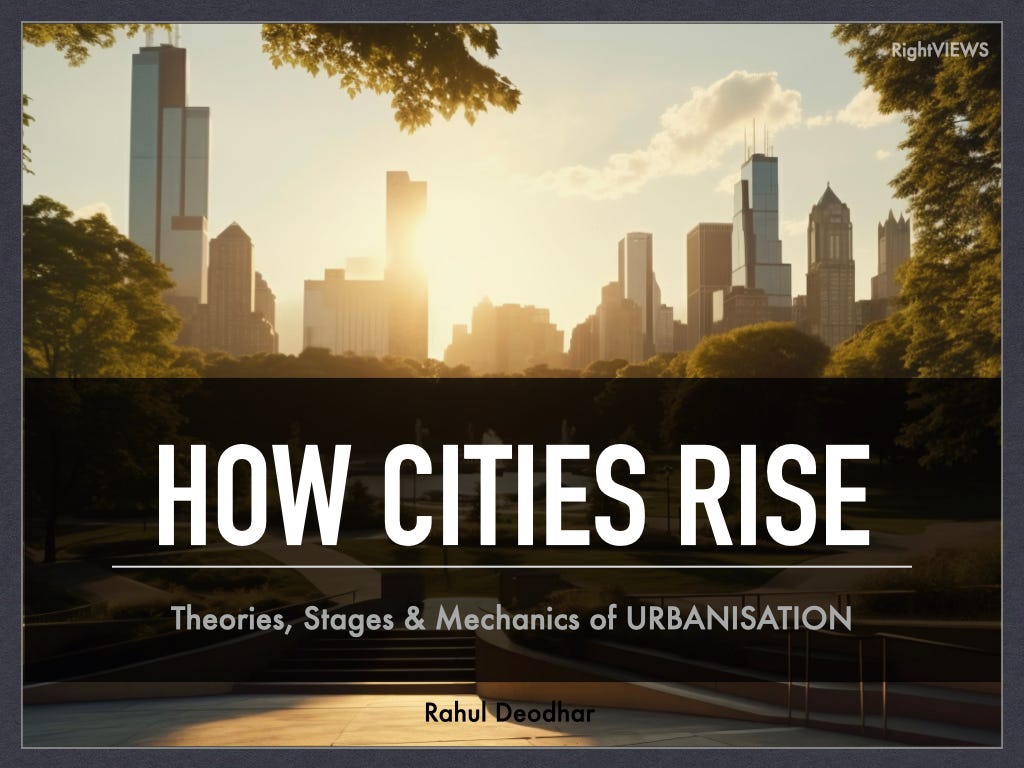How Cities Rise
Launching new book explaining the theories, stages and mechanics of urbanisation.
The rise of cities as a distinct trend has been on the radar of policymakers for more than four decades. Yet, how cities rise - WHY urbanisation happens, the stages of urbanisation and HOW it happens is not well understood. In this book, I present a hypothesis explaining exactly that.
We start with the definition.
Like many terms in the Real Estate Sector, Urbanisation needs to be clearly defined. In the book Defining the Urban, editors Deljana Iossifova, Christopher Doll, and Alexandros Gasparatos have done excellent work.
WHY urbanisation happens.
We need to understand WHAT attracts people to cities so we can better design those qualities.
I summarise some of the prevailing theories of urbanisation and propose a new theory on why urbanisation happens. I submit that urbanisation brings advantages in four parameters: Fundamental, behavioural, institutional, and economic drivers.
We will note the difference between rural and urban in fundamental drivers, including private resources, public resources, private resources for public use and common resources.
The behavioural differences between rural and urban hold the seeds of urban advantage. Anonymity and Serendipity in cities allow for more risk-taking. But, urban areas are limited-trust environments, leading to weak urban commons. I submit that Jane Jacob's communities and urban commons have the same core.
The differences also relate to institutions and economic drivers. The evolution and deployment of these parameters lead us to the stages of urbanisation. It will enable us to know how to transform a small rural community into an urban city.
Mechanics of Urbanisation
Finally, we will look at my Real Estate Dispersion model (RED Model), which explains how urbanisation happens around Affinity Centres and is influenced by commute—a variable measuring distance as a function of travel time. This gives us the ability to manipulate travel time (by creating infrastructure) and control Real Estate Development.





